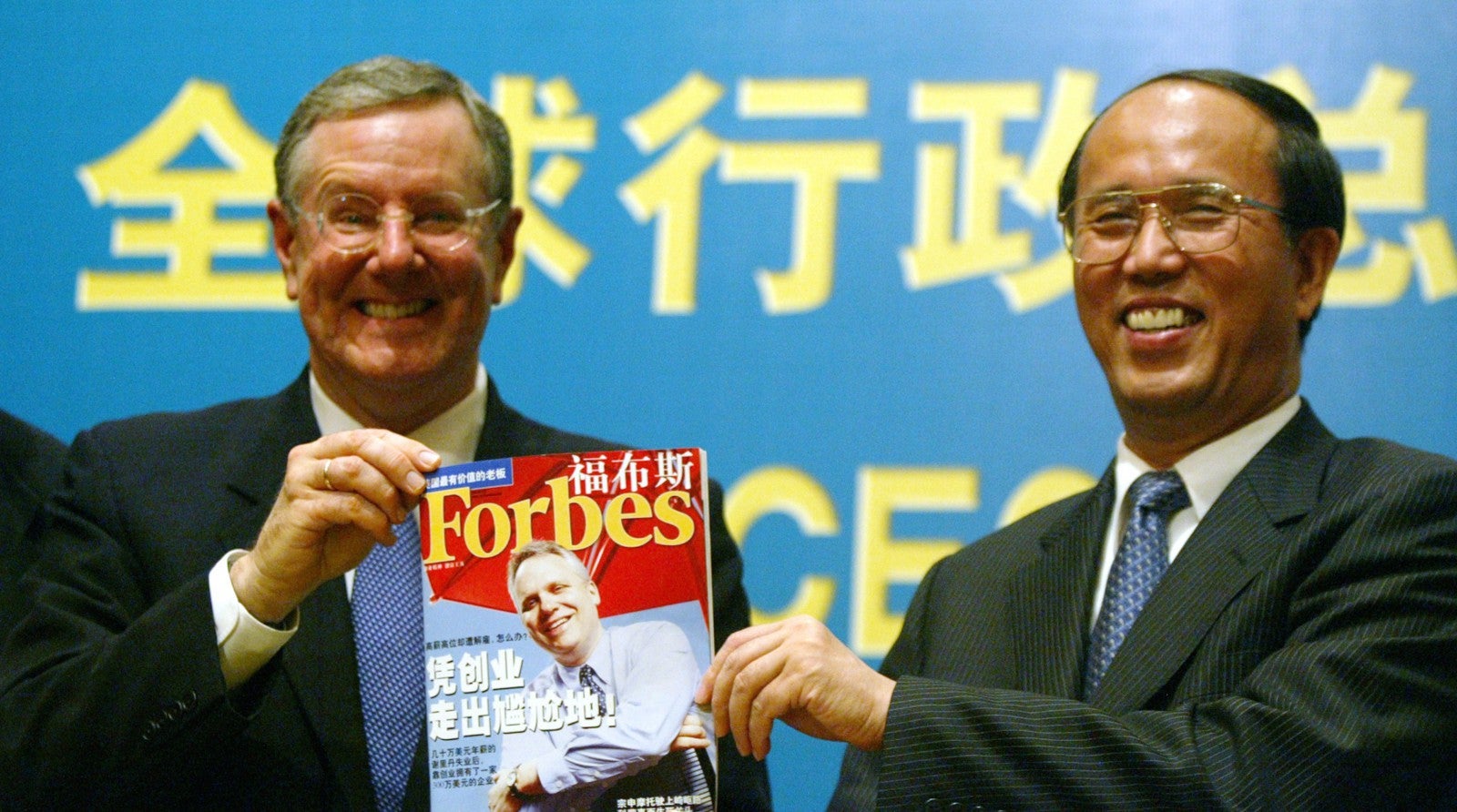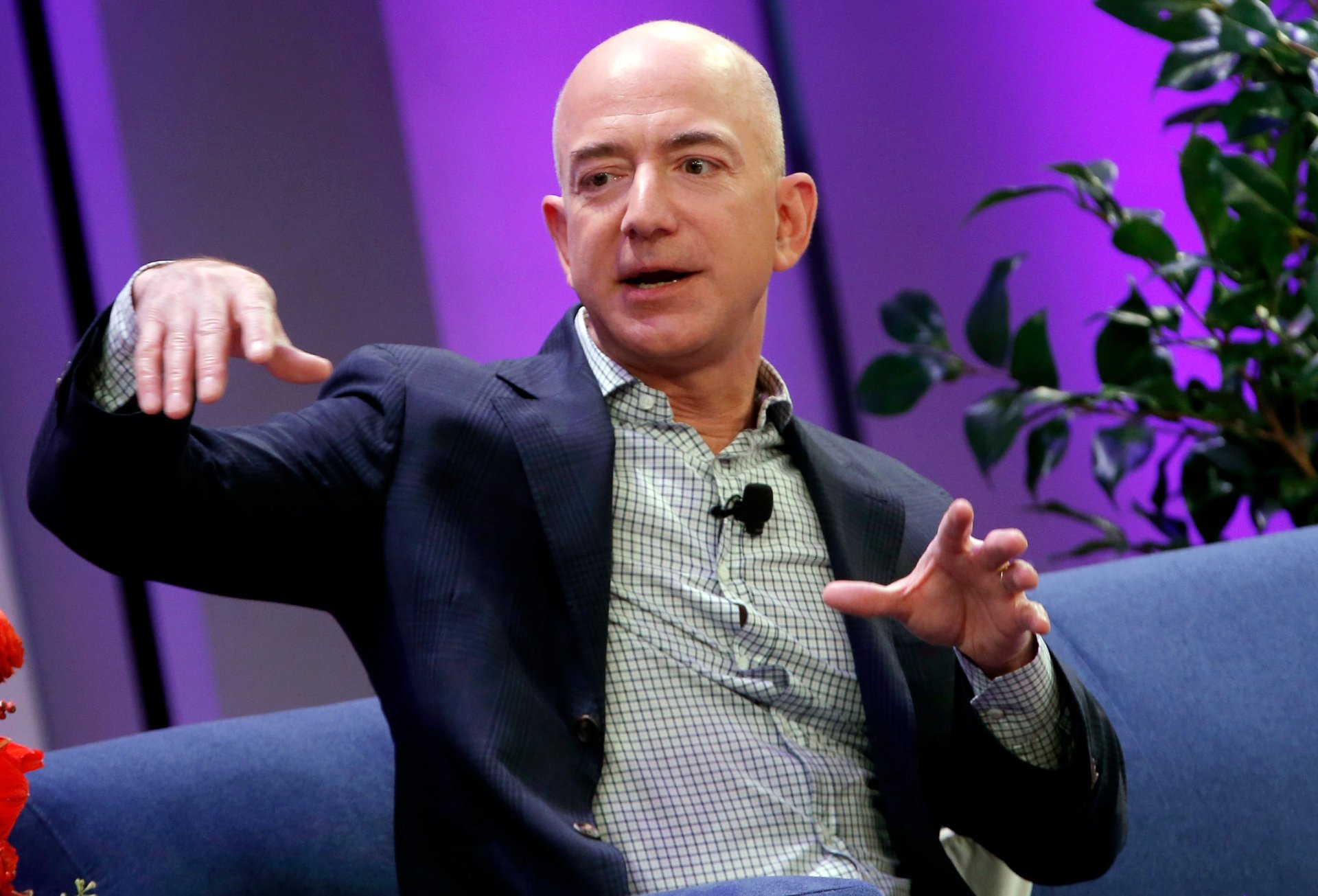We should be paying attention to the 1% of brainiacs, not billionaires
It doesn’t matter if you have money, or just wish you did, people have always been fascinated with wealth. And ranking it. The annual Forbes billionaires list—released this month—hits this sweet spot, providing intimate and sometimes silly details about the lives of people with enough money to last most of us many lifetimes.


It doesn’t matter if you have money, or just wish you did, people have always been fascinated with wealth. And ranking it. The annual Forbes billionaires list—released this month—hits this sweet spot, providing intimate and sometimes silly details about the lives of people with enough money to last most of us many lifetimes.
As CNBC’s Robert Frank puts it, such lists reinforce the reality that there’s “Richistan, and the rest.” While a reflection of our competitive, capitalist cultural values, there’s also a practical side to this fascination: between the top 0.0000001% and the top 1%, these individuals hold enormous influence—whether it be in business, politics, science, or education. These people matter because how they choose to use their wealth and corresponding power impacts all of us. But has our wealth fixation drawn attention away from a potentially more important 1%?
The business of brainpower
As I have argued before in Psychology Today, a more critical factor of influence, globally, is brainpower. Wealth, similar to height, seems easier to measure than intellect, although even Forbes has to make some assumptions when making its calculations. But researchers who study intellectual talent have over the years come up with their own ways of ranking the field. Many standardized tests can be used to judge intelligence, from cognitive ability tests, to achievement tests, to the educational tests used to compare students in various countries, and arguably even things like coding competitions. Consistently, these tests can be used as reasonable, albeit limited measures of the developed reasoning power of various people or groups.
Put another way, these tests give us an alternative method of thinking about what people mean when they talk about “talent”—technical or otherwise—in places like Silicon Valley. As Bill Gates told Forbes in 2005, if Microsoft didn’t “win the IQ war,” they would have no future.
The success of the Forbes list as a cultural touchstone is not surprising. But perhaps we need to reconsider the way we think about international rankings.
Already, researchers Heiner Rindermann and James Thompson have noted that the top fraction of scores on tests like the Program for International Student Assessment (PISA) and the OECD Survey of Adult Skills are predictive of their nation’s GDP. Indeed, working with Quartz’s Max Nisen, we used data from the highest scorers on the PISA and OECD tests and factored in population to approximate which country had the largest number of smart people. Comparing data from the highest scorers on intellectual talent for students and adults—such as the data from the PISA, the OECD or even SAT and ACT tests—therefore allows us the ability to estimate the influence of the a different kind of elite group, those among 1% intellectually.
Just how brainy are the billionaires?

Not surprisingly, there is significant overlap between the two sets of “1 percenters.” Mark Zuckerberg, Bill Gates, Paul Allen, and Jeff Bezos all scored very high on standardized tests and could certainly be considered in the top 1% or higher in brain power, as compared to the general population. As Forbes’ publisher Richard Karlgaard puts it: “[The scary smart] have inherited the world. The surest way to become a billionaire today is to be born with a 150-plus IQ and 800 math SAT skills.”
To estimate just how much overlap exists, however, I went back to the data, specifically, data applying to the US and global elite. For the US, individuals were classified in the top 1% of brains if they attended an undergraduate or graduate school with extremely high average standardized test scores placing the typical person within the top 1%. Researchers have determined that the SAT and the ACT give a reasonably good—while obviously imperfect—measure of a person’s general reasoning capacity. Globally, individuals were classified likely be in the top 1% of brains if they attended one of the top 10 schools in their respective nations, according to the QS World University Rankings. Just as many of the schools with the highest average SAT or ACT scores end up at the top of university rankings in the US, this is likely true globally. (For more detail on the methods used, including their limitations, please read the full papers.)
I uncovered that in 2012 and 2013 roughly 45% of US billionaires and 34% of world billionaires attended the top schools in their fields. To put it another way, while the top 1% ability individuals represent only 1% of the population by definition, they are overrepresented by about 31 to 45 times base rate expectations in these elite samples. Confirming Karlgaard’s statement, the billionaire technology and investment sectors included the highest percentage of brainiac individuals (globally, about 58% in each group were likely in the top 1%). This tracks with data on the new Silicon Valley elite: writing about the 290 newcomers to the Forbes 2015 list, Dan Alexander noted that “Aside from [Michael] Jordan, the Silicon Valley kids are the stars of the incoming class.”
There are a few huge caveats, of course. Some of these young billionaires inherited their wealth. Others may have gotten into elite schools through the long-hallowed traditions of legacy acceptance and other trappings of elite privilege. But it’s hard to dispute the fact that clearly, becoming a billionaire is no longer a designation reserved for the children of 19th century titans of industry.
Indeed, brainpower is proving to be most important for self-made wealth creators. With the rise in technology, talent is turning ideas into money in ever-innovative ways. Harvard’s Gregory Mankiw has noted that “changes in technology have allowed a small number of highly educated and exceptionally talented individuals to command superstar incomes in ways that were not possible a generation ago.”
What smart people choose to do matters
In the US, the rank order of average academic aptitude across various majors has remained fairly steady over the last 70 years, with science, technology, engineering, and mathematics (STEM) fields at the top and education at the bottom. As a culture, the US values STEM—perhaps due to the utility of the degree in various fields—contributing towards a growing trend of what Tyler Cowen calls the “hi-tech entrepreneur.” Once again, a career path with rising prestige that can lead to extraordinary wealth.
Meanwhile, longitudinal research on the top 1% in brains by my Vanderbilt colleagues David Lubinski and Camilla Benbow as well as my own number crunching suggests that those with the greatest intellectual wealth don’t use it to simply enrich their bank accounts. Contrary to the stories glamorizing college dropouts, of the 6,535 world leaders I researched—including CEOs, politicians, academics, judges, journalists, billionaires, and powerful people—the vast majority graduated from college and attended highly selective colleges worldwide. Academics and journalists were particularly likely to eschew high-income generating opportunities in order to pursue knowledge and impact the broader cultural conversation.
What does all this mean? While there’s nothing wrong with reveling in details of the rich and famous, we need to remember that the future belongs to the next generation of innovators and thinkers, not heirs. We’re currently obsessed with wealthy—and mostly older—people. Yet we really should be obsessed with smart—and mostly younger—people. Talented 1% kids grow up to be talented adults, and what they choose to do—whether they desire to be a great programmer, engineer, writer, musician, entrepreneur, doctor, researcher, teacher, or YouTube star—matters for all of us. Money is important, but any good Animaniacs fan knows it’s the brains who will ultimately take over the world.